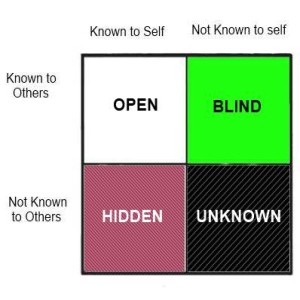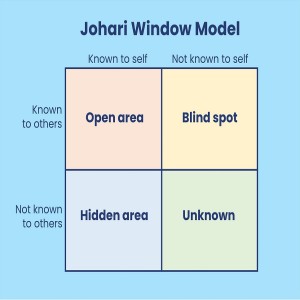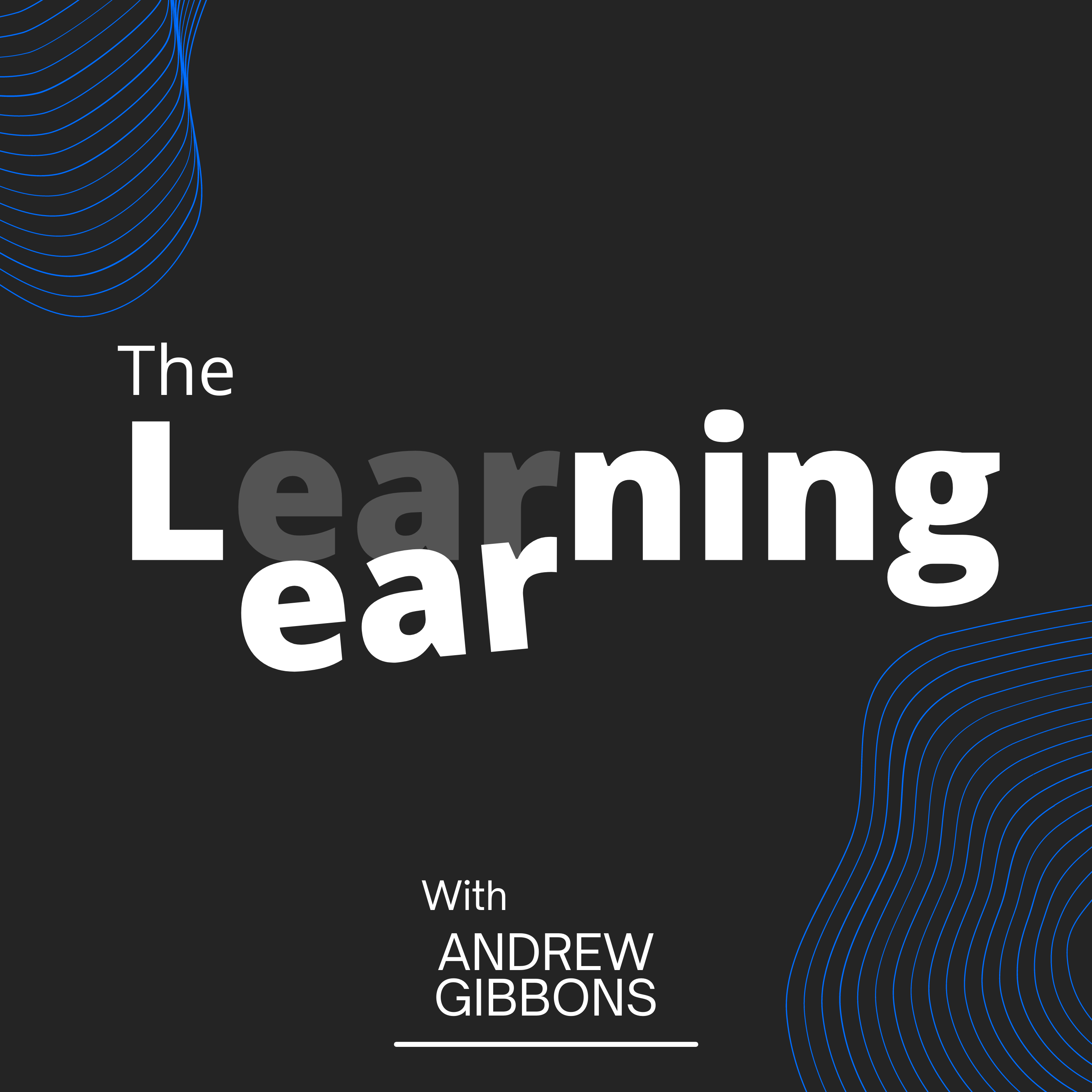Episodes

Monday Oct 03, 2022
11.26 Feedback friend or foe: Part one
Monday Oct 03, 2022
Monday Oct 03, 2022
Here I cover some significant issues around feedback issues:
Three benefits from receiving feedback competently
Three challenges for those that receive feedback
Three kinds of feedback
Four parts to the FAST feedback model
Four things to know about feedback
Five ways to give feedback well Five parts to the BOOST feedback model
See part two for my narration of the other key feedback issues in this set.

Sunday Aug 07, 2022
Sunday Aug 07, 2022
Here, with Rebecca Norton I explore the very significant added value that results directly from involving line managers at the earliest stage of any development event.
Using a current leadership programme ranging from the USA to China as the platform, I summarise the value I am gaining from the insights and perspectives of line managers with whom I speak, often many times, about the strengths of their colleagues to build upon, and specific issues in need of development.
This takes time, mine and theirs, time is money, and my client has, to his credit, seen the benefits of building this into the programme. Here we briefly dig into how and why line managers engage positively in this context, and why they do not.
Far too many times I feel line managers, critical stakeholders in the process of helping people develop and enhance performance, are not even considered during design, delivery or evaluation of a learning programme.
We conclude that in the right circumstances, which I believe is more often than not, the early involvement, and continued dialogue with line management can be a critical element in returning measurable value through applied learning.

Sunday Jul 31, 2022
14.27 My efforts to apply just two Thinking Environment components
Sunday Jul 31, 2022
Sunday Jul 31, 2022
Since Rebecca Norton introduced me to Nancy Kline's Thinking Environment model I have tried very deliberately and consciously to apply these simple, concise thoughts into my behaviour, particularly in the workplace.
Here Rebecca questions me on how I have done this, the positives I have seen, and how tough it is to adapt and strengthen deeply embedded habits and patterns of behaviour.
It is really hard to apply the Thinking Environment model. I am finding it takes persistence, deep reflection, very deliberate choice of behaviour, and I believe the outcomes se are well worth that effort.

Saturday Jul 23, 2022
15.59 Using the Thinking Environment model in meetings
Saturday Jul 23, 2022
Saturday Jul 23, 2022
With Rebecca Norton I explore five specific issues around using the Thinking Environment model in a meetings context...
1. Meetings of all sorts: 1 to 1, group, online, and more.
2. How can we get past embedded behaviours?
3. The need to be explicit about new and better ways of working.
4. If this is too much of a challenge what does that mean?
5. How this is a directly beneficial form of team development?

Tuesday Jul 19, 2022
17.16 Components 6 to 10 of the Thinking Environment
Tuesday Jul 19, 2022
Tuesday Jul 19, 2022
With Rebecca Norton I work briefly through the components 6 to 10 of Nancy Kline's Thinking Environment:
6. Encouragement
7. Feelings
8. Information
9. Place
10. Diversity
This is the second of a two part exploration of the ten components.
There is a lot more on and around the work of Nancy here, and at my website www.andrewgibbons.co.uk
Do subscribe to keep up to date with new uploads.

Monday Jul 18, 2022
14.15 The Thinking Environment: Components 1 to 5
Monday Jul 18, 2022
Monday Jul 18, 2022
Here, with Rebecca Norton I briefly explain and explore the first five of Nancy Kline's ten components of a Thinking Environment:
1. Attention
2. Incisive questions
3. Equality
4. Appreciation
5. Ease
Much more detail in Nancy's wonderful book 'Time to Think' summarised at my website www.andrewgibbons.co.uk
I have a lot of other Thinking Environment material here, including the second set of five components - subscribe to keep up to date with new uploads.

Sunday May 29, 2022
11.48 The challenges of Agile Leadership
Sunday May 29, 2022
Sunday May 29, 2022
With Robert Allan and his excellent slides, I explore the value of Agile Leadership in clearing roadblocks, developing trust and giving really capable people a reason to stay.
Do the leaders of the future need humility, faith in the capability of others, and the ability to genuinely empower?
This is not easy, and we hit the challenges head on.

Tuesday May 24, 2022
7.28 Six questions around leadership values
Tuesday May 24, 2022
Tuesday May 24, 2022
A brief exploration of six key questions around values-led leadership:
Are values-driven leaders more effective than those who are not?
How many leaders are explicitly clear about their personal values?
What are the individual versus organisational issues?
Are values statements slogans, or are they authentic and practiced?
Are values dynamic - how often should they be re-visited?
What are the observable indications of a values-driven leader?

Friday Apr 22, 2022
14.32 Key conflict management issues
Friday Apr 22, 2022
Friday Apr 22, 2022
A narrated 8 slide set hitting just a few of the key issues around managing conflict:
Two essentials to resolve conflict
Two principles of assertion
Three common reactions when confronted with a difficult interpersonal situation
Four levels of conflict
Five phases of conflict
Five conflict management styles
Five ways to manage conflict
Eight pros and cons of conflict
I hope this helps.

Sunday Apr 03, 2022
10.05 Eight coaching definitions
Sunday Apr 03, 2022
Sunday Apr 03, 2022
Eight carefully chosen, high source-credible definitions of coaching with some of my own thoughts around what I particularly like, based on a forty year coaching career.

Monday Mar 14, 2022
13.02 Nineteen things only the best coaches do
Monday Mar 14, 2022
Monday Mar 14, 2022
Here, based on my own observations and experiences, I briefly work through 19 very specific behaviours of only the very best coaches.

Friday Mar 04, 2022
15.34 Using the Johari Window as a Coach
Friday Mar 04, 2022
Friday Mar 04, 2022
Here with Rebecca Norton we explore many practical applications of the Johari Window diagnostic tool in a coaching context.
The four 'panes' of the Window are discussed: Open area, blind spot, hidden area and unknown.
The two dimensions of known to others/not known to others, and known to self/not known to self are explained.
We then get into some really specific issues around the use of the Window, and give advice on how best to get powerful results from this simple, yet complex model.

Friday Mar 04, 2022
12.45 An overview of the Johari Window
Friday Mar 04, 2022
Friday Mar 04, 2022
Here with Rebecca Norton I give a brief overview of the Johari Window diagnostic tool.
The four 'panes' of the Window are discussed: Open area, blind spot, hidden area and unknown.
The two dimensions of known to others/not known to others, and known to self/not known to self are explained.
The four elements (panes) of the matrix are then considered and practical issues around the use of this versatile tool covered.

Monday Feb 14, 2022
7.41 Cressida Dick: Martyr or one-woman culture creator?
Monday Feb 14, 2022
Monday Feb 14, 2022

Wednesday Feb 09, 2022
11.47 The challenges of coaching in a thinking environment
Wednesday Feb 09, 2022
Wednesday Feb 09, 2022
In 'The Promise', Nancy Kline sets out very clearly and concisely the specific behaviours that differentiate coaches that coach without interruption, and speak on invitation, from those that direct conversations, over-help, that distract and disrupt those with whom they work.
Here, based on many direct quotes from the section of the book devoted to coaching, I offer my own thoughts and interpretations.
These are radical, tough changes to the practice of many, and will be dismissed by those who feel coaching is about giving insight and advice, not space and respect.
I have started using these ideas in my own practice, and I feel in the right context it is well worth the considerable effort in terms of value to the client.

Monday Feb 07, 2022
4.43 Can you be a non-interrupting coach?
Monday Feb 07, 2022
Monday Feb 07, 2022
Nancy Kline provides in 'The Promise that changes everything - I will not interrupt you', some very clear and challenging requirements of what it takes to coach in a Thinking Environment.
How, she says can you be sure that what you as a coach are about to say is more significant that what, as a busy thinker, your client is using silence to ponder?
Can we, as she suggests, change how we determine a session's value? Are we comfortable with telling our clients they will be paying for our attention, and that everything else is a bonus?
Can we, the holder of great wisdom and advice, agree that we will not interrupt our client unless and until our thoughts are invited?
Can we move away from being over-directive, over-helping disrupters of thinking to being genuinely facilitative and giving those with whom we work a rare and special space in which to reach more positive places?

Saturday Feb 05, 2022
Sixty seconds on the two principles of assertion
Saturday Feb 05, 2022
Saturday Feb 05, 2022
Two simple thoughts on how to get more of what you seek, in any context.
Too often I feel, we could have got a better outcome from an encounter.
We really can get better results without harming relationships.
Here are two one liners that really can make a difference.

Monday Jan 31, 2022
1.00 Two types of attention: Uninterrupted and continuous partial
Monday Jan 31, 2022
Monday Jan 31, 2022
Nancy Kline, citing the work of Lorraine Stone says there are two forms of attention: Continuous Partial and Uninterrupted.
Essentially, Uninterrupted Attention is what we unrealistically seek in conversation, a meeting, learning environment or whatever, and Continuous Partial Attention is what we get.
For instance, when in conversation, although we appear to be given the attention of one or more others, as soon as a phone beeps, that partial attention evaporates and the device is given what we sought - Uninterrupted Attention.
For how long can we expect Uninterrupted Attention? What helps us to be given this, and how if at all, can we protect ourselves from the distractions of other felt to be more worthy sources?
What, more personally, can we each do better to show true Uninterrupted Attention when tempted, even expected, to show Continuous Partial?

Tuesday Jan 25, 2022
4.19 The learning value chain is broken
Tuesday Jan 25, 2022
Tuesday Jan 25, 2022
For me, all learning has value only when applied, resulting in an attributable and sustainable positive impact.
Sounds simple, and all the theoretical frameworks support this idea. The trouble is, far too often, it is no more than an idea.
To be seen more often I believe we need to see enthusiastic, supported learners with incentives and reasons to develop and apply new insights.
We need to move away from the apparent and false perception of value from herding people by the dozen onto chairs, and work more often at a one to one level. Then we need to reward those who use their learning to enhance their own and organisational performance.
Is this too much to expect? It is in organisations where when I raise this I get told 'just do the training'!

Friday Jan 21, 2022
12.10 Direct quotes from the promise that changes everything p140 - end
Friday Jan 21, 2022
Friday Jan 21, 2022
More concise, radical and so challenging thoughts from Nancy Kline.
Plenty here that 'coaches' who over-help should think on.
Can we really develop the ability to show such intense focus on others that we speak only when invited by them?
Is our ego and desire to unhelpfully inflict wisdom and ideas sufficiently under control?
Is what we are going to say really more important than what our conversation partner was about to think?
Can we re-shape the value we bring to clients as coaches away from what we tell them to the space we provide to let them find their own solutions?
Are we capable of breaking out of a cycle of wanting people to feel as we do to encouraging genuine independent thinking?
I am finding the questions above really tough, and will keep on trying.

